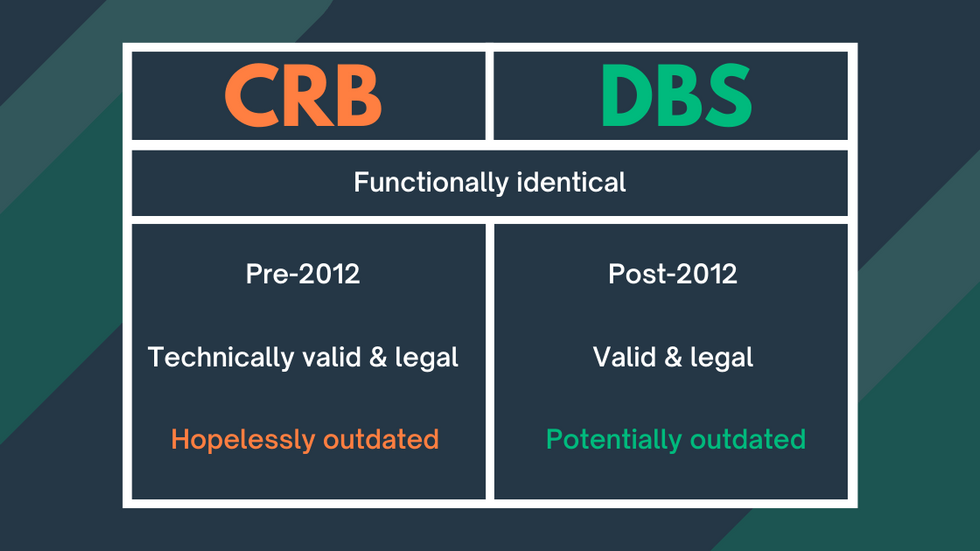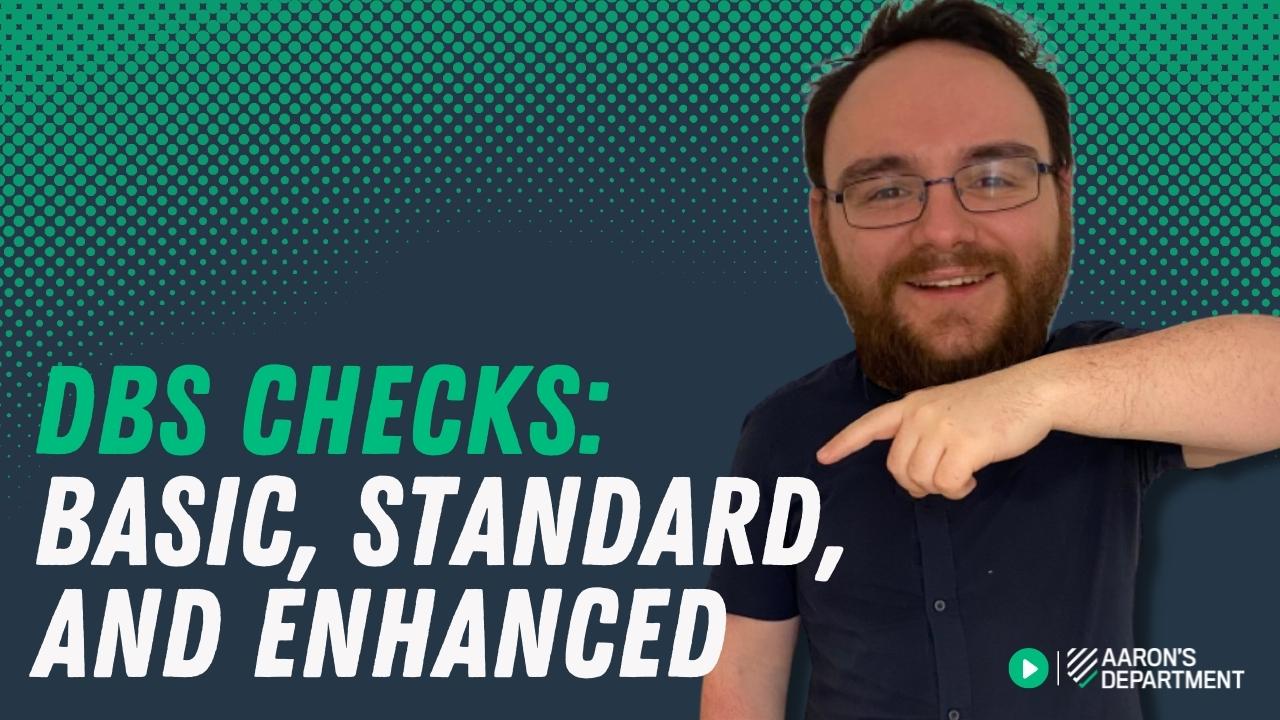When carrying out a DBS check, it is essential to understand the differences between the three types of DBS checks, Basic, Standard, and Enhanced—especially if you’re an employer. This comprehensive DBS Check Guide will walk you through each type, helping you make the right choice and avoid costly mistakes.
Choosing the wrong type of DBS check for your employees or volunteers can lead to rejected applications and potential legal issues. Understanding the levels of DBS checks is key to maintaining compliance and protecting your business.
DBS Check Guide – What Does DBS Stand For?
DBS stands for the ‘Disclosure and Barring Service’. This service, overseen by the Home Office, supports employers in making safer hiring decisions, safeguarding both their organisation and the people they serve. The DBS replaced the Criminal Records Bureau (CRB) in 2012, though both serve similar functions.
Prior to 2012, the DBS was known as the Criminal Record Bureau (CRB). This chart shows the main differences between CRB and DBS checks, but for more detail it’s best to visit our dedicated page, CRB Check.


DBS Check Guide – What Is a DBS Check?
A DBS check, depending on the level selected, is an official document that states an individual’s criminal convictions. They are used by employers to ensure that when hiring someone, a well-informed and suitable decision for the role in question can be made. The higher the level of DBS check requested, the more information is included on the certificate.
As we will discuss later, DBS checks are also essential in keeping children and Vulnerable Adults safe.
DBS Check Guide – What Is A Basic DBS Check?
Basic DBS checks are a type of criminal record check that disclose:
– Any unspent convictions and cautions that the applicant has.
Anyone can apply for a Basic DBS Check, with the applicant’s consent, and it’s often used by employers to assess candidates during the recruitment process. Industries that frequently require Basic DBS checks include airport staff, contractors, agency workers, and drivers. This check is also popular with self-employed individuals looking to boost trust with potential clients
DBS Check Guide – What Is A Standard DBS Check?
Standard DBS checks can only be applied for by employers, on behalf of a current or potential member of staff/volunteer. If a role is eligible for a Standard DBS check, then it also means that a Standard DBS check is legally required for all staff/volunteers working in that role. They disclose:
– Spent and unspent convictions, cautions, and reprimands.
This level of DBS check is typically required for roles of responsibility or trust that do not directly involve working with children or Vulnerable Adults. Common examples include roles such as lawyers, accountants, security guards, and care home cleaners.
*Vulnerable Adults is the term the DBS uses to refer to over-18s who are in receipt of some form of health or social care. This is a very simplified definition, however. For a full explanation, have a read of our page, FAQ: What is a Vulnerable Adult?
DBS Check Guide – What Is A Enhanced DBS Check?
Enhanced DBS checks can only be applied for by employers, on behalf of a current or potential member of staff/volunteer. If a role is eligible for an Enhanced DBS check, then it also means that an Enhanced DBS check is legally required for all staff/volunteers working in that role. This level of check discloses:
– Spent and Unspent Convictions, cautions, and reprimands.
– Any relevant information held by the local police forces (“local” to the applicant’s 5-year address history).
– If eligible, this level of DBS also includes a check of the Adults’ Barred List and/or the Children’s Barred List.
Enhanced DBS checks are used for roles that involve contact with children (under-18s) and/or Vulnerable Adults. School Teacher, Taxi Driver, Carer, Dentist, and Childminder are all roles which require an Enhanced DBS check. Many sectors/regulatory bodies also require that staff Enhanced DBS checks are also regularly renewed – read our guide to DBS renewal for more info.


DBS Check Guide:
How can employers get DBS checks?
Employers must use the services of a 3rd party ‘Umbrella Body’ to make DBS applications for staff. If you’re interested, that’s exactly what we do here at Aaron’s Department!
Our fast-tracked, easy-to-use, affordable system is the choice of thousands of organisations across England, Wales, Man, and the Channel Islands (Scotland and Northern Ireland use other checks). If you’re looking to save on your staff DBS checks, use the buttons to sign up (for free) and get started in minutes.
Any questions? Our customer service is a real point of pride for us (just check our testimonials!). Feel free to get in touch at contact@aaronsdepartment.com, or call 0113 877 0171 between 8:00am and 5:00pm on a weekday. We look forward to hearing from you!
DBS Check Guide: Why Are DBS Checks Important?
DBS checks are critical for protecting vulnerable groups such as children and vulnerable adults. By understanding and following this DBS Check Guide, employers can ensure they are complying with legal requirements while also creating a safer environment for everyone involved.
Forward this page!


Conclusion: Start Your DBS Check Journey Today
Whether you’re an individual or an employer, understanding the differences between the three types of DBS checks is essential for making safe, informed decisions. Follow our DBS Check Guide to ensure you’re choosing the correct type of check and stay compliant with the law.
If you have any questions or need help getting started, our customer service team is here to assist. Reach out to us today!
Related Articles
If you’ve found our DBS check guide useful, we’ve linked some other handy resources below:

